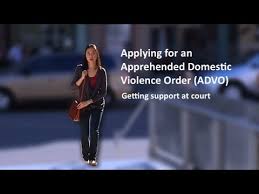Withdrawing an AVO
What is an AVO?
An Apprehended Violence Order (AVO) is an order made by a court against a person called the ‘protected person’ who found to be in need of protection from a particular person, the ‘defendant’. It is designed to protect the people included from further violence, intimidation or harassment. It is a criminal offence for the defendant to breach an AVO.
What does a protected person do when changing or withdrawing an AVO?
In some cases, the protected person may want the AVO to be revoked or have certain conditions changed. This can arise if the protected person feels the AVO is no longer necessary due to changes in circumstances. It could be that the AVO is restricting the protected person from continuing their relationship due to strict conditions, for example by prohibiting the defendant from contacting the protected person.
An application to change or withdrawing an AVO can be made to the court. The application to revoke or vary an AVO can be made to the court at any time whilst AVO orders are in force, including interim orders. This involves filing the proper form in court with supporting information. This form and information must be served on the defendant and any other protected persons who appear on the AVO.
The court will set a date for the application to be dealt with. On this day the court can make orders withdrawing an AVO entirely or change the conditions after hearing the evidence as to why this should happen.
What can a person who made a complaint do if they do not want the defendant to be criminally charged or they make an application withdrawing an AVO?
If you previously made a complaint but you want the police to consider withdrawing an AVO or a criminal charge, for example common assault or breach of an AVO, you can write to the police. You can also do this if you want the police to reconsider calling you to give evidence against someone in court. This letter is called ‘representations’ which is a written application asking the police to consider certain issues before calling the protected person to give evidence. You can seek legal advice and instruct a solicitor to write the representations for you.
What can you do if you have been called to give evidence and you do not want to?
In most cases, the protected person is the main witness in AVO proceedings. In criminal proceedings the person who made the complaint or the victim is often the main prosecution witness. There may be police witnesses who can give evidence. This means that in order to make a strong prosecution case the police will need evidence of the person who made the complaint or they consider the victim.
In some situations where the complainant has a relationship with the accused, they can rely on s 18 of the Evidence Act 1995 (NSW), to raise an objection to giving evidence. This allows the court to consider the damage that could be caused to certain types of relationships such as parent/child,
spouses or de facto’s when compelling them to give evidence.
The Judge or Magistrate must consider the nature and gravity of the offence that the accused is being prosecuted for, the importance of the evidence, whether any other evidence would be reasonably available to the prosecutor and the nature of the relationship with the accused and the person objecting.[1]
If the court is satisfied that there is a likelihood that harm will be caused to the relationship if the person gives evidence and that the nature and degree of harm which would be caused to the relationship is not as important as the need to give that evidence, the court can make a decision to allow the objection. This means that person cannot be compelled to give evidence.
What happens if the court does not allow the objection?
It is important to consider that there are certain offences in which a person is not allowed to raise an objection to.
If the court does not allow the object, you call still be compelled to give evidence.
In some circumstances, failure to give evidence can mean the person is found in contempt of court and can be criminally charged.
What happens if the protected person or complainant was not issued a subpoena to give evidence?
It is the duty of the police to issue a subpoena to the protected person to attend court and give evidence. If a subpoena has not been served to the witness and they do not attend court, the matter will either be dismissed or adjourned to a later date.
If you or anyone you know want to make an application withdrawing an AVO, call our experienced criminal lawyers at LY Lawyers on 1300 595 299.
[1] Evidence Act 1995 (NSW) s18 (7) (a-d)







